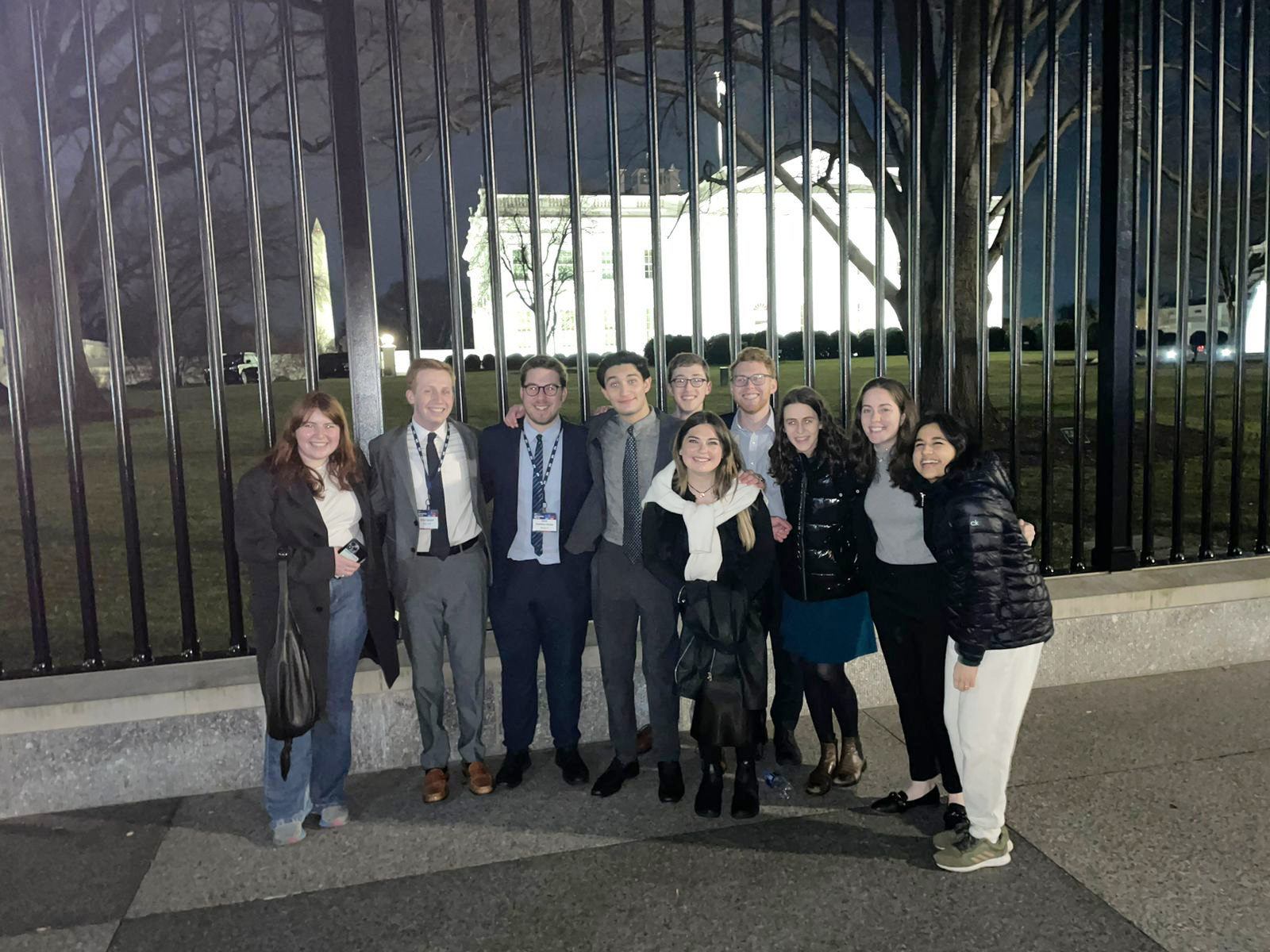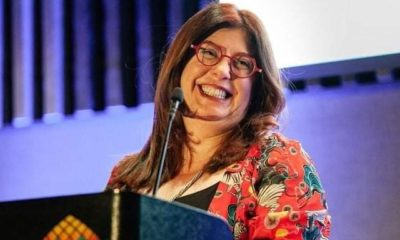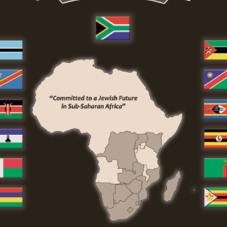
Youth

SA youth leader has unplanned Shabbos with US kingpins
When Kayla Diamond set off to Washington for the American Jewish Committee’s (AJC’s) leadership conference from 4 to 6 February, she didn’t anticipate that a private Shabbos lunch would bring her a once-in-a-lifetime experience.
She landed up being hosted by Anne Neuberger, the deputy national security advisor for cyber and emerging technology in the Biden administration, and breaking bread with top politicians.
It was all because being shomrei Shabbos, she asked to spend Shabbos with an observant family while at the conference.
Diamond’s first encounter with the AJC was in June last year, when she attended one of its conferences in New York as a member of the South African Union of Jewish Students (SAUJS). A few months later, she was elected to its newly founded National Global Board to represent South Africa.
The AJC’s national leadership conference began on Saturday night (4 February). However, she and three other students who keep Shabbat contacted a shul to ask to be placed with an observant family over Shabbat. After spending Friday night with one family, on Saturday morning, they set off to their assigned home for the rest of the day.
It was only when she arrived at the Ritz-Carlton penthouse, that she realised she would be spending the day with Neuberger.
Among the guests at Neuberger’s Shabbat lunch were Elliott Abrams, who served in foreign policy positions for George W. Bush, Ronald Reagan, and Donald Trump; and Maggie Goodlander, the deputy assistant attorney general of the United States (US) justice department, married to Jake Sullivan, US national security advisor.
She was party to their lunch-time conversation, discussing the contrast between American and South African politics as well as international relations with Israel, and how both countries’ governments and citizens reacted to the Israel-Palestine conflict.
However, what struck Diamond most was the realisation that these distinguished political figures weren’t just “normal people”, they were religious Jews like her.
When asked about her experience of being a religious woman in the White House, Neuberger told Diamond that though there’s a lot of antisemitism from the public, most of her colleagues are very accepting of her religion. Moreover, “they have a lot of respect for her diligence in her own religious practice”. Diamond admired the fact that “she goes into the White House almost every day and yet still takes the time to prepare a Shabbos meal”.
The conference began after Shabbat. The group met Ted Deutch, the chief executive of the AJC, as well as the board of governors and other leading members of the committee. They discussed the issues surrounding antisemitism on university campuses around the world, and highlighted the rise in antisemitism experienced by Jews aged 18 to 30. “There’s a massive gap between [the board’s] generation and ours,” said Diamond. “They’re eager to help, but a lot of the time, they don’t know how to. At the end of the day, they’re not on campus facing those issues.” Together, they brainstormed “how funding and resources can be used to actually make a difference”.
Though campuses in America often have better access to resources, she felt “a strong sense of pride” in discussing some of the actions that SAUJS has taken to combat antisemitism on campus. She even found herself being asked for advice by other members, such as how to deal with the so-called “Israeli Apartheid Week”.
“In America, ‘Israel Apartheid’ is often brought up in conversation, but not always fully understood,” she said. “For us [in South Africa], it’s a touchy subject, but also very much ingrained in us. After all, South Africa was the epicentre of apartheid, so there’s a different view on that narrative”.
That night, the group went out for dinner, and each was able to select an ambassador they would like to sit next to for the evening. Diamond sat with the deputy chief of mission for the Embassy of the Republic of Cyprus, Maria Savvidou. “We spoke about the situation in Cyprus and its ongoing conflict with Turkey,” she said. “We also discussed Israel-Cyprus relations. She spoke positively about Israel, and the relationship with their ambassador in Israel.”
On the last day of the conference, they attended a seminar on antisemitism. The AJC presented some of the research it had garnered in communities around the US. “One survey in the black and Hispanic communities in the US found that more than 50% had never heard the word ‘antisemitism’,” Diamond said. They also found that “more than nine in 10 US adults [91%] said antisemitism was a problem for everyone and affected society as a whole. And yet, only 47% of US adults surveyed said that antisemitism had increased over the past five years compared to 82% of American Jews.”
Diamond was also able to get a glimpse of America’s Jewish communities, which she found to be far more polarised than in South Africa. “In America, there are so many different sects of Judaism and everyone’s views are so different,” she said.
However, “going to shul and hearing the same tunes that are sung here after a 16-hour flight halfway across the world” reminded her that “our traditions and pride are what unite us”.








